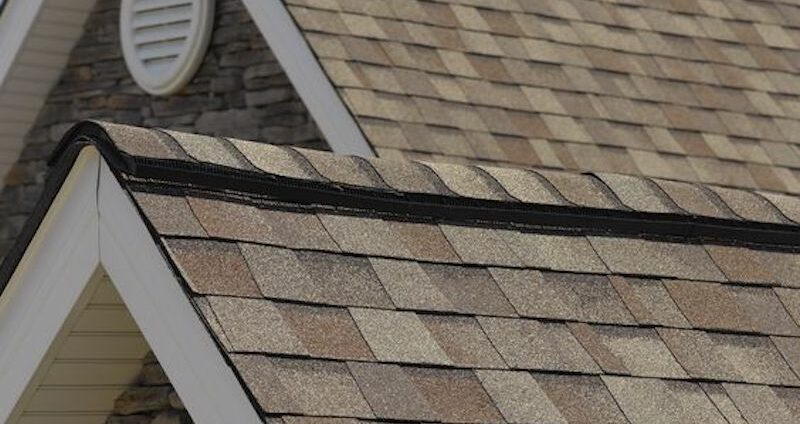
A standard roofing warranty usually includes two things: a manufacturer’s warranty covering the roofing material itself against defects and a warranty from the roofing company that covers the workmanship of the job. Both warranties come together to protect different aspects of your roof.
From roofing material to labor, you want to ensure you have a comprehensive warranty that protects you and your home in the event of sub-par installation as well as material defects.
Types of Warranties
First, let’s define the different types of roofing warranties.
Roofing Material Warranty
This is a common roofing warranty that’s available to homeowners. Shingle roofing material warranties offer protection in the event of any kind of shingle defect. It usually totals about 25 years, but can be more.
While the roofing material warranty is important, you need something else to fill in the gaps on coverage of all materials associated with things other than just the shingles – like nails or underlayment. Plus, roofing material warranties could only cover the cost of new materials, leaving you holding the bill for installation costs.
Roofing Workmanship Warranty
That’s where the next type of warranty comes in. Workmanship and installation are important when it comes to new roofing. You could have the best materials in the world but if they’re installed incorrectly, they will fail over time.
This type of warranty offers protection for both labor and installation, and signifies that the roofing contractor will stand by their work and guarantee performance for a set amount of years – usually between 10 and 15 years.
Lifetime Warranties
Sometimes you will hear of lifetime warranties, which is where things can get tricky. In the roofing biz, lifetime does not mean for life. Some roofing companies say a lifetime warranty is just five; others say more. But if you consider that the average lifespan of a shingle roof is 25 years, this doesn’t even come close to giving you ample coverage.
Lifetime may also vary between manufacturers depending on the roofing material and the climate. If you live in a region that experiences extreme temperature variations in one day, for example, you will probably be offered a lesser lifetime warranty than someone in dry, desert conditions.
How to Void a Roofing Warranty
Here are some common ways in which people inadvertently void their roofing warranty.
- Improper installation: Hiring a licensed roofing contractor with experience and skill is imperative. If materials are not properly installed, the manufacturer’s warranty will fail to apply to your roof.
- Poor roof ventilation: Your roof is comprised of much more than just shingles: you have the decking, insulation and ventilation systems as well. Ventilation controls the temperature of your roof as well as your home. Improper ventilation can lead to water damage, mold, and roof damage. If a problem arises with your roof that has been caused by poor ventilation, the warranty could be voided.
- Layering shingles: If your contractor puts a new layer of shingles over the current ones, this is called a roof layover and it will void the warranty.
- Pressure washing: While you may think you’re doing a good thing pressure washing your roof to remove algae and other stains, this can wash away the protective granules that your roof is comprised of. Damage caused by a homeowner’s mistake and poor judgement will void the manufacturer’s warranty.
Contact Hi-Tech Windows & Siding for Roofing
We would be happy to explain all our warranties in detail for you as part of your new roof installation in Andover MA and surrounding areas. To schedule a consult, call us today at 800-851-0900.
- Category: Home Improvement, Information, Roofing Contractor
- 0 comment
